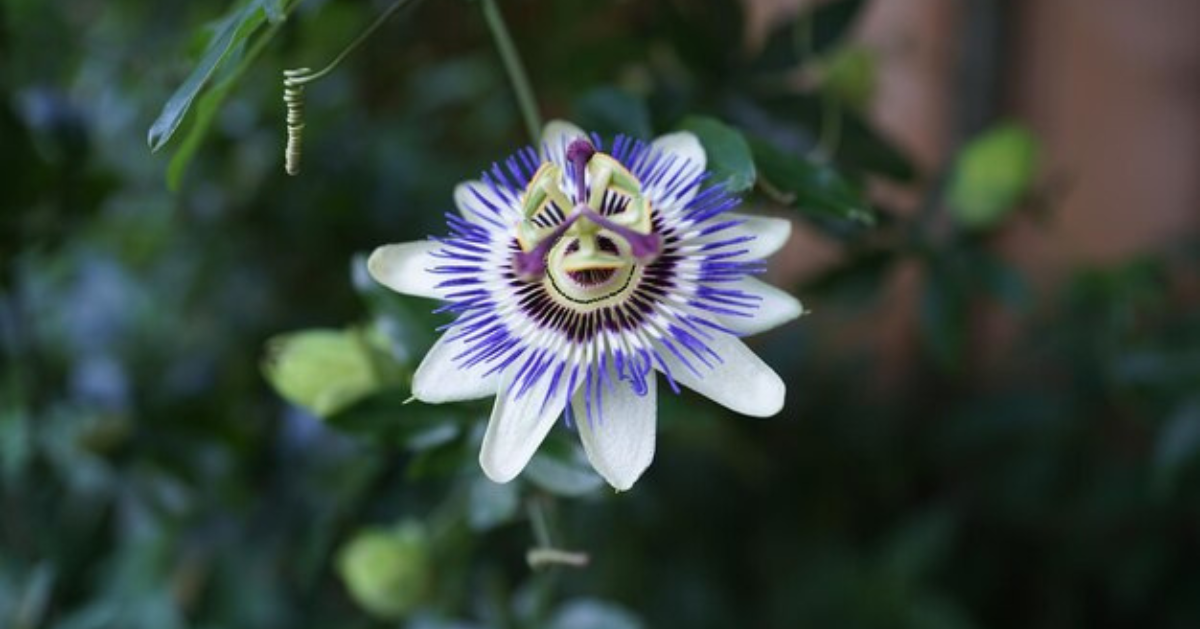Passionflower, scientifically known as pasiflora, is a climbing vine with striking, intricate flowers. Originally native to the Americas, it has a long history of being used in herbal medicine. Its calming properties have made it a popular natural remedy for stress, insomnia, and anxiety.
A Brief History of Passionflower
Passionflower was first discovered in the 16th century by Spanish explorers in South America. Its unique appearance reminded them of the Passion of Christ, hence its name. Indigenous tribes used it for its medicinal properties, and today, it remains a staple in herbal remedies worldwide.
The Botanical Beauty of Passionflower
Passionflower is not just a medicinal marvel; it’s a visual delight. Its flowers boast a combination of white, purple, and blue hues with a complex structure that makes it stand out among other plants.
Nutritional Profile of Passionflower
Passionflower contains flavonoids, alkaloids, and phenolic compounds, which contribute to its health benefits. These components are known for their antioxidant and calming effects.
Health Benefits of Passionflower
Relieves Anxiety Naturally
Passionflower is often used to reduce anxiety. It works by increasing levels of gamma-aminobutyric acid (GABA) in the brain, which helps calm the nervous system.
Improves Sleep Quality
Struggling to fall asleep? Passionflower tea or supplements might help. Its sedative properties promote relaxation, making it easier to drift off into a restful sleep.
Supports Heart Health
The antioxidants in passionflower can protect the heart by reducing oxidative stress and supporting healthy blood circulation.
Eases Menopausal Symptoms
For women experiencing menopause, passionflower may help alleviate symptoms like mood swings and hot flashes due to its hormonal balancing effects.
Reduces Pain and Inflammation
Passionflower is believed to have mild analgesic and anti-inflammatory properties, making it useful for headaches, muscle pain, and minor injuries.
How to Use Passionflower
Passionflower Tea
One of the most popular ways to enjoy passionflower is by brewing it into a tea. Simply steep dried passionflower leaves in hot water for 10 minutes for a calming cup.
Passionflower Supplements
Available in capsules, tablets, or tinctures, passionflower supplements provide a convenient way to incorporate its benefits into your daily routine.
Topical Applications
Some skincare products use passionflower extracts for their soothing and antioxidant properties, making them ideal for calming irritated skin.
Safety and Precautions
Possible Side Effects
While passionflower is generally safe, excessive consumption may cause dizziness, drowsiness, or nausea. Always stick to the recommended dosage.
Who Should Avoid It?
Pregnant or breastfeeding women should consult a healthcare provider before using passionflower. Additionally, those on sedatives or medications for anxiety or insomnia should seek medical advice to avoid interactions.
How to Grow Passionflower at Home
Ideal Growing Conditions
Passionflower thrives in warm climates with well-drained soil and plenty of sunlight. It’s a fast-growing vine that can be trained to climb fences or trellises.
Planting Tips
Start with seeds or cuttings. Soak the seeds in warm water before planting to encourage germination. Water the plant regularly but avoid overwatering.
Caring for Your Passionflower
Prune it to maintain shape and encourage new growth. Use organic fertilizers to keep the plant healthy and blooming.
Cultural and Symbolic Significance of Passionflower
In addition to its medicinal uses, passionflower has spiritual and symbolic meanings. It represents faith, spirituality, and the Passion of Christ in Christian symbolism.
Passionflower Recipes to Try
Passionflower Iced Tea
Brew passionflower tea, let it cool, and serve over ice with a slice of lemon for a refreshing drink.
Herbal Infusion Blend
Combine passionflower with chamomile, lavender, and honey for a soothing evening tea blend.
Frequently Asked Questions (FAQs)
1. Can I take passionflower daily?
Yes, passionflower can be taken daily in recommended doses, but consult your doctor for long-term use.
2. Does passionflower help with depression?
While primarily known for anxiety and sleep, it may also have mood-stabilizing effects.
3. Can children use passionflower?
Small doses may be safe for children, but always consult a pediatrician first.
4. Is passionflower addictive?
No, passionflower is non-addictive and considered a safe alternative to sedative medications.
5. Where can I buy passionflower?
You can find passionflower in health food stores, online shops, and some pharmacies as teas, capsules, or tinctures.















